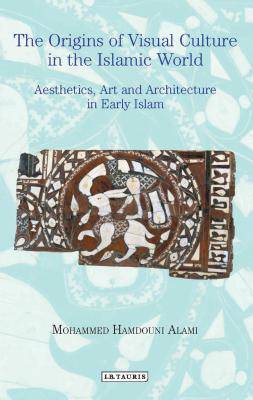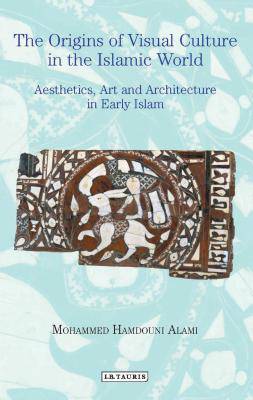
- Afhalen na 1 uur in een winkel met voorraad
- Gratis thuislevering in België vanaf € 30
- Ruim aanbod met 7 miljoen producten
- Afhalen na 1 uur in een winkel met voorraad
- Gratis thuislevering in België vanaf € 30
- Ruim aanbod met 7 miljoen producten
Zoeken
The Origins of Visual Culture in the Islamic World
Aesthetics, Art and Architecture in Early Islam
Mohammed Hamdouni Alami
€ 271,45
+ 542 punten
Omschrijving
In tenth-century Iraq, a group of Arab intellectuals and scholars known as the Ikhwan al-Safa began to make their intellectual mark on the society around them. A mysterious organisation, the identities of its members have never been clear. But its contribution to the intellectual thought, philosophy, art and culture of the era - and indeed subsequent ones - is evident. In the visual arts, for example, Hamdouni Alami argues that the theory of human proportions which the Ikwan al-Safa propounded (something very similar to those of da Vinci), helped shape the evolution of the philosophy of aesthetics, art and architecture in the tenth and eleventh centuries CE, in particular in Egypt under the Fatimid rulers. With its roots in Pythagorean and Neoplatonic views on the role of art and architecture, the impact of this theory of specific and precise proportion was widespread. One of the results of this extensive influence is a historic shift in the appreciation of art and architecture and their perceived role in the cultural sphere. The development of the understanding of the interplay between ethics and aesthetics resulted in a movement which emphasised more abstract and pious contemplation of art, as opposed to previous views which concentrated on the enjoyment of artistic works (such as music, song and poetry). And it is with this shift that we see the change in art forms from those devoted to supporting the Umayyad caliphs and the opulence of the Abbasids, to an art which places more emphasis on the internal concepts of 'reason' and 'spirituality'.Using the example of Fatimid art and views of architecture (including the first Fatimid mosque in al-Mahdiyya, Tunisia), Hamdouni Alami offers analysis of the debates surrounding the ethics and aesthetics of the appreciation of Islamic art and architecture from a vital time in medieval Middle Eastern history, and shows their similarity with aesthetic debates of Italian Renaissance.
Specificaties
Betrokkenen
- Auteur(s):
- Uitgeverij:
Inhoud
- Aantal bladzijden:
- 200
- Taal:
- Engels
- Reeks:
Eigenschappen
- Productcode (EAN):
- 9781784530402
- Verschijningsdatum:
- 30/05/2015
- Uitvoering:
- Hardcover
- Formaat:
- Genaaid
- Afmetingen:
- 141 mm x 220 mm
- Gewicht:
- 426 g

Alleen bij Standaard Boekhandel
+ 542 punten op je klantenkaart van Standaard Boekhandel
Beoordelingen
We publiceren alleen reviews die voldoen aan de voorwaarden voor reviews. Bekijk onze voorwaarden voor reviews.











